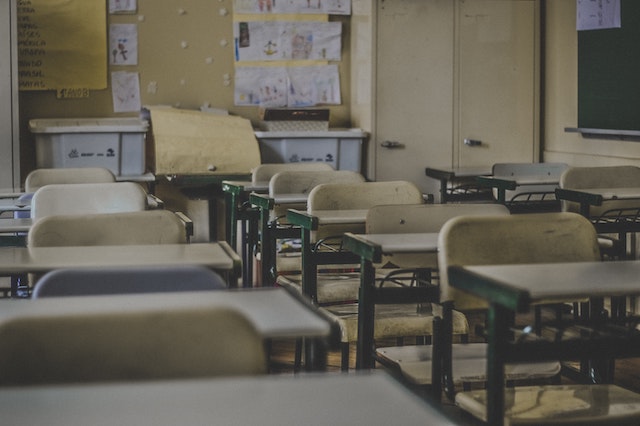Student Bryce Muneses Named Baltimore County Commission on Disabilities Student of The Year
Photo by Feliphe Schiarolli on Unsplash
In 2018, Baltimore’s school system spent about a quarter of its $1.3 billion budget on special education programs, according to The Baltimore Sun. This year the county commission celebrated Muneses and other award winners in a virtual event on YouTube. During the event, Bryce was described as the picture of positivity, strength, and perseverance. The 10th grader has been unable to walk independently after experiencing a stroke when he was a baby.
Muneses’ elementary assistant, Lauri Ludwig, nominated him for the award because he has never allowed his disability to stop him from scoring excellent grades. Bryce’s mother, Raquel Muneses, says her son has a 4.0 GPA and attributes her son’s success to Ludwig. For a special education teacher, appreciation from families is one of the top benefits of teaching special needs students. By following Ludwig’s example, special education teachers can raise awareness for students with disabilities using simple tips listed below.
Leverage Existing Support Groups
There are many support groups for special education teachers can use to create awareness for students with disabilities. Most of these groups have online forums where you can discuss issues affecting your students with other special needs teachers, parents, and professionals. You will also get access to useful resources on group websites. Invest time to learn and understand different disabilities, how they affect learning, and what you can do to help your students.
Most importantly, leverage the support offered by different special needs groups to find lasting solutions to conditions affecting learners in your school. For example, if you have students with cerebral palsy, find a group that offers compassionate support for cerebral palsy patients. This step will help you discover therapies and surgery options for cerebral palsy tailored to improve patients’ quality of life and health.
Advocate For Your Students
As a special education teacher, you need to learn how to advocate for special needs students because most learners with disabilities cannot speak for themselves. Be proactive in speaking up about what your students want, their needs, and their rights. It is your responsibility to inform students and their families about their rights in and outside the school environment. You must also create partnerships with various organizations to ensure learners access the services they need to succeed.
Students with disabilities can succeed in academics and all aspects of life if provided with the right kind of support and resources. To make this a reality, teachers, and parents must raise awareness about disability and education. They can leverage support groups, advocate for students, or spread the word via social media platforms.

